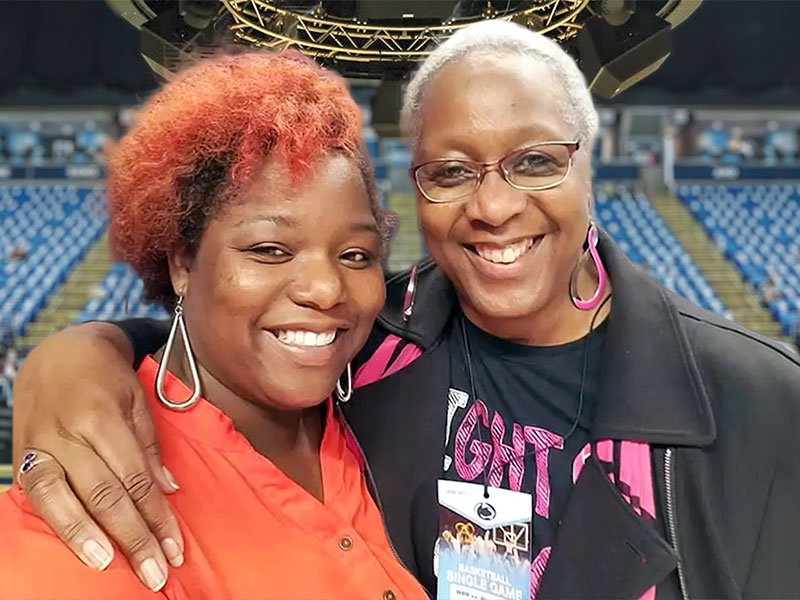
The Pink Zone was fortunate to be able to catch up with survivor Roberta Hardin during the lead up to the holidays to discuss her breast cancer diagnosis and journey since then.
Tell us a bit about yourself…
My name is Roberta Hardin and I live in Bellefonte, PA. I’m divorced and have four children, eight grandchildren, and four great-grandchildren.
When were you diagnosed with breast cancer?
I was diagnosed on February 2, 2016, followed by my mastectomy on March 3, my first chemo treatment on April 4, and my last of four chemo treatments on June 6. When I share that with people, they want to know what happened on May 5.
How did you feel after your diagnosis?
Believe it or not, I felt relief. Let me explain. In August of 2015, I saw what appeared to be a thumbprint on my left breast. I did a self exam and felt nothing. (My sister was a breast cancer survivor and always encouraged us to do self exams, know our bodies, and get checkups. Because of that, I began having annual mammograms at age of 33). I heard God’s voice say “I got you” and a complete peace came over me. My annual mammogram was scheduled for January, so I figured I’d check it then. I did not tell anyone because I did not want them to worry because I was confident that God “had me,” and worrying wasn’t going to change anything.
When I went for my mammogram in January, the doctor also thought the impression was odd and stated that because of my family history, she wanted to be aggressive in checking that out. They called two days later for me to come in for another mammogram because the first showed nothing. The second mammogram also showed nothing, so she wanted to do a biopsy. I left that appointment with this thought, “if it was cancer we’d deal with it, but I was not going to waste time worrying about it because worrying would not change anything, just make me sick. On Feb. 2, I got the call from my PCP.
The reason I say I felt relief is because I now knew and could proceed. I still felt a sense of calm and peace as I remembered my August experience. My PCP explained that I had Stage-1 breast cancer, but that it had been caught early, was hormone receptive and could be treated. He had already scheduled an appointment for me to meet with an oncologist and a surgeon (should I choose to have surgery).
It was now time to tell my children and friends.
How did you handle the challenges and changes associated with your treatment?
I prayed a lot and my best friend was with me for the appointments (oncologist and surgeon). She is a nurse, so she helped me with the medical questions. She, too, is also a strong woman of faith and I knew she was praying with me. After we met with the doctors and they gave me my options, we discussed them, prayed about them and I made my decision.
Did you have a strong support network?
My support network was varied. I got tremendous support from two local women who had gone through the process. One was a former co-worker and she referred me to her friend. Between the two of them, I got information like what questions to ask, what tests I should ask to be done and even what things I should eat and not eat during chemo. They even brought me soup and protein bars in preparation for beginning chemo. Also, my best friend took me to doctor appointments, to the hospital for tests, and to the hospital for the surgery. (She lives 50 minutes away from me.) And my church family was there for me.
How did having this support help you?
Knowing they cared meant more than anything, and they were positive. I chose to surround myself with only people who would be positive with me. As I told friends and family of my journey, I explained to them that if they could not be positive, then I did not want them to call or come around.
Could you give us an update on your current health status?
I am cancer-free! Currently, I am taking Tamoxifin.
What advice would you give to those diagnosed with or battling breast cancer?
I would strongly recommend that they stay positive and surround themselves with people who will be positive with them. Don’t try to go through this alone. Accept help. Getting the diagnosis is not a “death sentence” — have faith in God and get proper care.